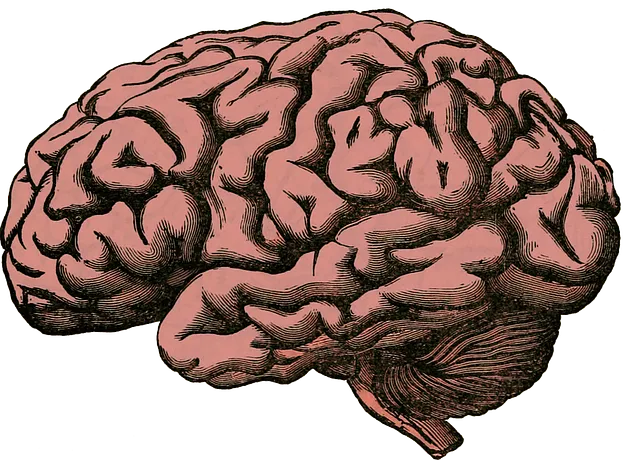Kaiser Permanente mental health centers in Aurora offer a holistic approach to well-being through group facilitation, cultural sensitivity, trauma support, and self-care routines. Facilitators create safe spaces for peer connection, sharing experiences, and gaining insights, addressing common challenges and fostering social connections crucial for recovery. This, combined with active listening, open communication, emotional intelligence training, and engagement strategies, enhances resilience and prevents burnout. Positive Kaiser Permanente mental health center reviews in Aurora highlight the program's effectiveness, guided by research and evaluations focusing on key performance indicators and best practices in Burnout Prevention Strategies and Risk Management Planning.
“Explore effective group facilitation techniques in mental wellness support through this comprehensive guide. We delve into the role of group sessions in enhancing mental health care, using Kaiser Permanente Aurora as a case study—a renowned center for holistic treatment. Learn how to create safe, inclusive environments and engage participants actively. Discover strategies proven successful at Kaiser Permanente, measured by impactful reviews from patients. Optimize your mental wellness programs with these evidence-based facilitation techniques.”
- Understanding Group Facilitation in Mental Health Support
- Kaiser Permanente Aurora: A Center for Comprehensive Care
- Techniques to Foster Safe and Inclusive Group Environments
- Engaging Participants: Strategies for Effective Group Sessions
- Measuring Success: Evaluating the Impact of Group Facilitation Programs at Kaiser Permanente
Understanding Group Facilitation in Mental Health Support

Group facilitation plays a pivotal role in mental health support, offering a unique and powerful approach to enhancing well-being. At Kaiser Permanente mental health centers like those in Aurora, facilitators create safe, inclusive spaces where individuals can connect, share experiences, and gain valuable insights from one another. This collaborative process is particularly effective for addressing common challenges and fostering social connections, which are essential components of recovery.
Cultural sensitivity in mental healthcare practice is a key aspect of successful group facilitation. Recognizing the diverse backgrounds and experiences within a group allows facilitators to tailor their approach, ensuring that everyone feels heard and respected. This, coupled with trauma support services and the encouragement of self-care routine development for better mental health, creates an environment conducive to healing and growth.
Kaiser Permanente Aurora: A Center for Comprehensive Care

Kaiser Permanente Aurora is a renowned mental health center that offers comprehensive care to individuals seeking support for their mental wellness. With a focus on holistic healing, the center provides a range of services designed to nurture both the mind and body. This Aurora location stands out among mental health facilities due to its integrated approach, combining traditional therapy with innovative practices like mindfulness meditation and stress management workshops. Patients can expect personalized treatment plans tailored to their unique needs, fostering inner strength development and promoting long-term mental resilience.
The center’s dedicated team of professionals includes licensed therapists, counselors, and psychiatrists who bring a wealth of experience in various therapeutic modalities. They ensure a safe and supportive environment, facilitating group sessions that encourage open dialogue and community building. Additionally, Kaiser Permanente Aurora prioritizes risk management planning for mental health professionals, implementing robust strategies to identify and mitigate potential risks within the treatment setting. This commitment to comprehensive care ensures that individuals receive not just effective therapy but also a nurturing space where they can embark on their journey towards improved mental health.
Techniques to Foster Safe and Inclusive Group Environments

Creating a safe and inclusive environment is paramount for effective group facilitation, especially in mental wellness settings like the Kaiser Permanente mental health center reviews Aurora highlight. Facilitators should encourage open communication from the outset, ensuring every member feels heard and respected. This can be achieved through active listening techniques, where facilitators reflect back members’ sentiments and experiences, fostering a sense of validation and trust.
Additionally, promoting a non-judgmental atmosphere is key to building a supportive group dynamic. Encouraging vulnerability and sharing in a safe space allows members to tap into their inner strength development, as they learn from one another’s journeys. This collective approach can significantly enhance resilience and serve as a powerful tool in burnout prevention, which is a critical aspect of holistic mental wellness care.
Engaging Participants: Strategies for Effective Group Sessions

Engaging participants is a critical aspect of facilitating successful group sessions at Kaiser Permanente mental health centers in Aurora. To ensure active participation, facilitators should employ strategies that foster open communication and create a safe space for emotional expression. Encouraging members to share their experiences and perspectives through icebreakers or reflective exercises can help build camaraderie and promote a sense of belonging.
Additionally, incorporating techniques such as emotional intelligence training and inner strength development activities can significantly enhance group dynamics. By focusing on self-esteem improvement and fostering an environment where individuals feel valued, facilitators can encourage meaningful conversations and support each member’s mental wellness journey. These strategies not only make sessions more engaging but also contribute to the overall effectiveness of group therapy at Kaiser Permanente Aurora.
Measuring Success: Evaluating the Impact of Group Facilitation Programs at Kaiser Permanente

Evaluating the success and impact of mental wellness group facilitation programs is paramount in understanding their effectiveness at Kaiser Permanente mental health centers, such as those in Aurora. The organization prioritizes evidence-based practices and continuous improvement, making regular assessments crucial. Research methods may include surveys, interviews with participants and facilitators, and data analysis on key performance indicators (KPIs) like attendance rates, satisfaction scores, and improvements in symptoms or coping mechanisms.
At Kaiser Permanente, reviews often focus on the holistic benefits of group facilitation, including enhanced peer support, improved communication skills, and better stress management—all vital components for healthcare provider well-being. These evaluations inform adjustments to program structure, content, and delivery methods, aligning them with current best practices in Burnout Prevention Strategies for Healthcare Providers and effective Risk Management Planning for Mental Health Professionals.
Group facilitation techniques play a pivotal role in enhancing mental wellness, as evidenced by programs at Kaiser Permanente Aurora, a renowned mental health center. By creating safe and inclusive environments, facilitators can engage participants effectively, fostering meaningful connections and supporting one another through shared experiences. The success of these programs, as measured through evaluations, highlights the potential for group facilitation to revolutionize mental health support, making it accessible and impactful for all, as underscored by Kaiser Permanente Aurora’s positive reviews.






